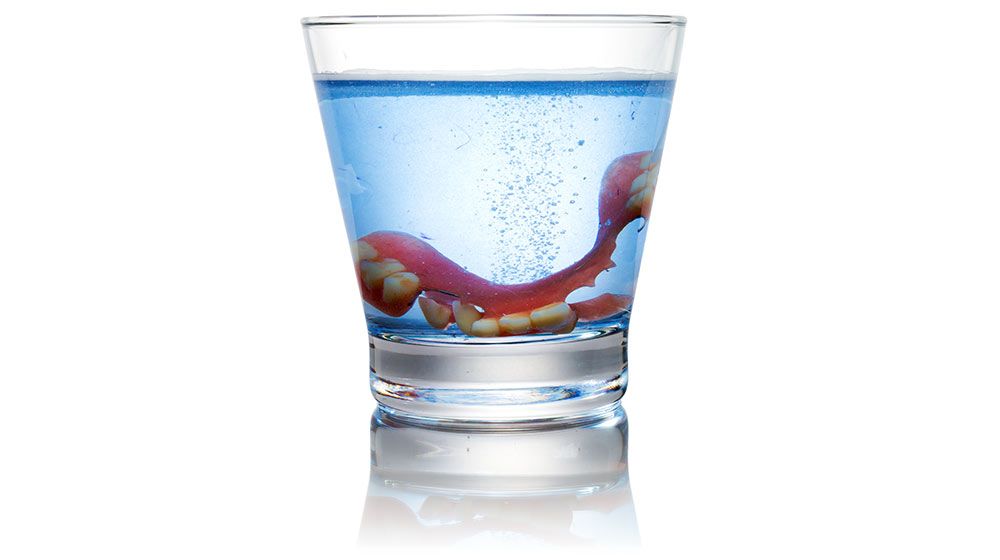Denture Care

How to Clean Your Dentures
Dentures should be brushed daily like your normal teeth. Removing food and plaque after each meal can ensure that your dentures maintain their look and feel for as long as possible. To clean your dentures:
- Start by thoroughly rinsing off food and other particles. Do not use boiling or hot water, as this can warp your dentures. Some patients choose to fill the sink with water or a towel during cleanings to prevent damaging their dentures if they fall.
- Gently brush the entire denture with a soft-bristle toothbrush. Do not use a hard-bristle brush, as this can scratch the dentures and cause bacteria to get trapped in the crevices, causing denture odor.
- Do not use whitening toothpaste or an abrasive toothpaste, as these contain powerful levels of peroxide that may damage your dentures without whitening them. Instead, use a denture cleanser.
- Brush your own teeth, gums, and the inside of your mouth to remove plaque accumulated throughout the day
Be gentle when handling your dentures during cleaning. Do not bend the plastic or attempt to modify any of the metal clasps, as this can affect the fit of your dentures and cause irreparable damage.
With proper care and maintenance, most dentures can last five to seven years without needing replacement.
Removing Dentures Overnight
Although you will use dentures for a majority of the day to chew and speak properly, you will need to remove them nightly. This is a requirement for both partial and full dentures. When you are not wearing your dentures, you should carefully place them in a container filled with water or denture-soaking solution. Do not leave them in a dry place; this can cause warping. If your dentures have metal clasps, only use water to protect the metal. Be sure to cover the container to avoid contamination and spillage. Before putting the dentures back in your mouth in the morning, rinse them thoroughly to remove the soaking solution.
Caring for Implant-Supported Dentures
Many patients choose implant-supported dentures because of their superior stability, security, and aesthetics. As implant-retained dentures are securely affixed to your jawbone through dental implants, they are less likely to fall out and become damaged. You will care for implant-supported dentures the same as you would with your natural teeth. You should also schedule frequent visits to your dentists to assess the health of your implants, abutments, and gum tissue.
The Importance of Routine Checkups
Dentures are an expensive investment and should be properly cared for and maintained. To prevent damage to your dentures and help them maintain their function for as long as possible, you should schedule regular visits to your dentist. If your dentures feel uncomfortable, hurt your gums, or appear damaged, schedule a visit to your dentist right away. He or she may be able to realign, repair, or replace your dentures. With proper care and maintenance, most dentures can last five to seven years without needing replacement.







